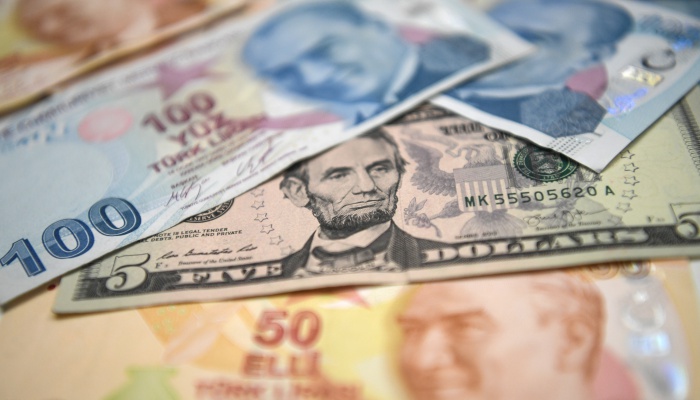Turkish Finance Minister Mehmet Şimşek on Monday sought to calm markets by suggesting that the recent volatility in the exchange rate should be seen as temporary amid an unprecedented plunge in the Turkish lira, with the US dollar and euro surpassing 32 and 35 Turkish lira, respectively.
The lira last week posted its worst weekly performance since July 21, according to Bloomberg. The currency has lost more than 7 percent of its value against dollar so far in 2024.
The increasing volatility in the exchange rate is mainly attributed to higher-than-forecast inflation rates and declining national reserves, which are casting a shadow over the value of the lira ahead of local elections scheduled for March 31.
The upgrade from Fitch, raising Türkiye's long-term foreign currency debt rating to B+ from B and the outlook to positive from neutral, reflects the strength of Türkiye’s sound economic policies.
We are committed to maintaining sound policies and implementing structural reforms.…
— Mehmet Simsek (@memetsimsek) March 11, 2024
In a recent tweet on X, Şimşek emphasized the temporary nature of the lira’s depreciation. “The recent volatility in the FX market should be viewed as temporary,” he said.
Şimşek also said the recent upgrade Turkey received from the Fitch credit rating agency reflects the strength of Turkey’s sound economic policies.
Turkey’s financial standing has received a boost as Fitch Ratings on Friday upgraded the nation’s long-term foreign-currency issuer default rating (IDR) to “B+” from “B” while also revising the country’s outlook from “stable” to “positive.”
Şimşek pointed to the government’s commitment to fighting inflation. The Turkish Central Bank (TCMB) is determined to use all available tools to effectively manage inflation expectations, according to the minister.
With regard to stabilizing prices, Şimşek emphasized the need for patience in order to achieve price stability.
“It is important to keep in mind that achieving price stability takes time,” he said. The minister reiterated that the government would continue to tighten fiscal policy to support the central bank’s efforts to bring down inflation, which had risen to 67.1 percent year-on-year in February.
Turkey is preparing for local elections at the end of March. The ruling Justice and Development Party (AKP) wants to recapture major cities such as İstanbul and Ankara, which are currently controlled by the opposition.
President Erdoğan has expressed confidence that the government’s anti-inflation measures will take effect by the end of the year.
The finance minister also touched on the longer-term outlook, hinting that Turkey will have an extended non-election period after the elections to implement productivity and competition-enhancing reforms under a medium-term program announced last September. “The program announced in September is working,” Şimşek said.
More than a decade has passed since Turkey received an investment grade rating from Fitch. However, from 2017 onwards, the country suffered a series of five downgrades, mainly due to President Recep Tayyip Erdoğan’s economic strategies, which boosted economic growth while jeopardizing the value of the lira and price stability.
Faced with a financial crisis characterized by a rising cost of living and a decline in foreign investment, Erdoğan recalibrated his approach after his re-election in May.
Since the elections in May, which gave Erdoğan another five years at the helm, Turkey has taken more aggressive steps to tighten monetary policy than expected, which has helped to lower inflation expectations and reduce external liquidity risks.

